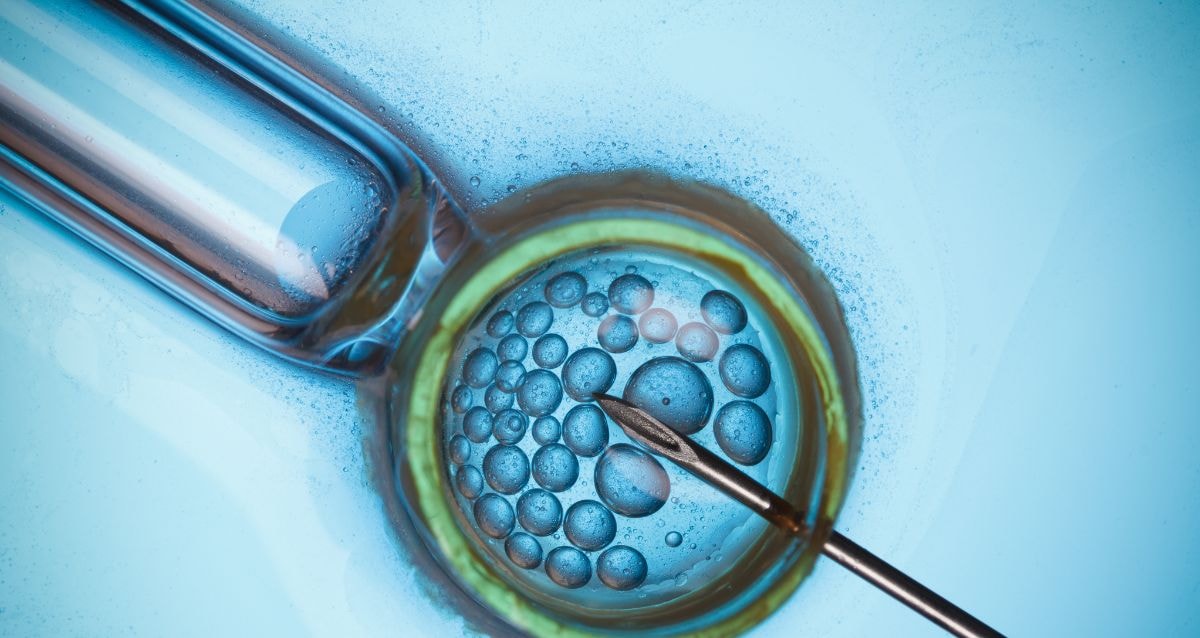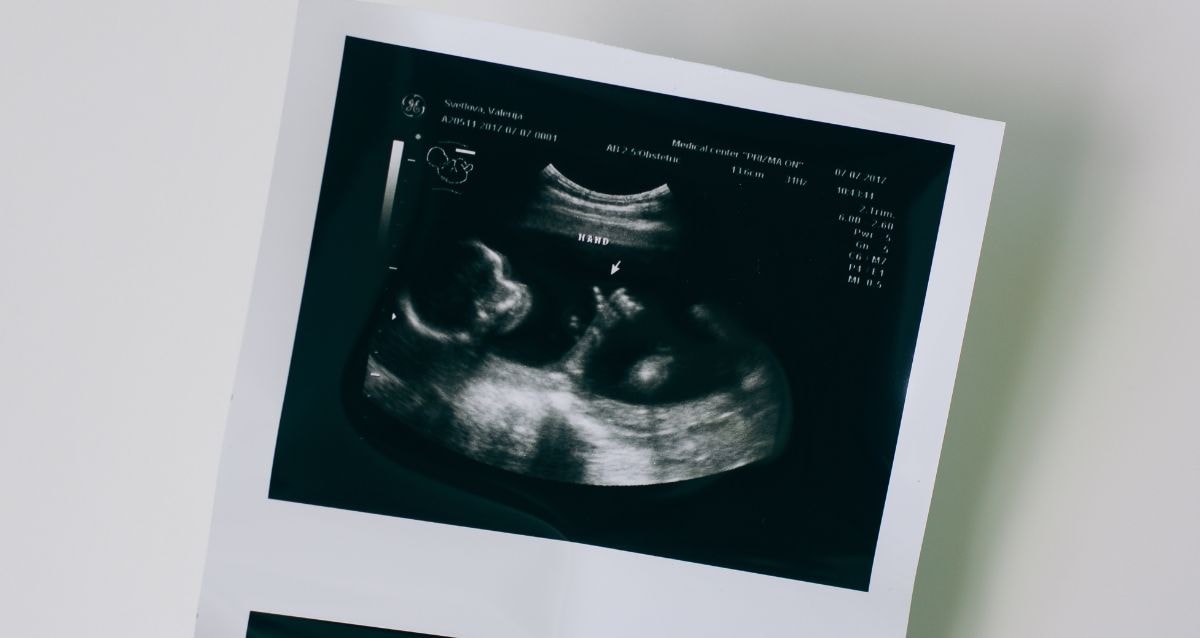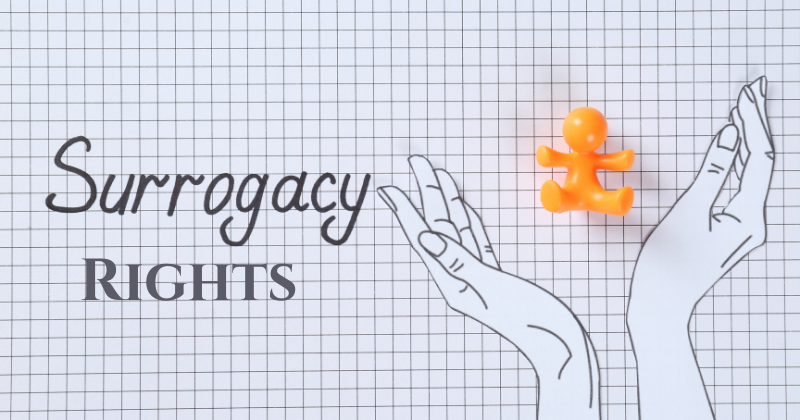This blog was originally published in August 2024 and has been updated in September 2025.
It’s a question many hopeful parents ask when looking into surrogacy: Can a surrogate carry another woman’s egg? The answer is yes, and thanks to modern medicine, it’s not only possible but also one of the most common and successful paths to parenthood today. In this blog, we’ll walk you through how it works, what it means for intended parents, and why so many families choose this incredible journey.
Key Takeaways
- A surrogate can carry another woman’s egg through gestational surrogacy.
- In gestational surrogacy, the surrogate carries the pregnancy but has no genetic link to the child.
- Intended parents may use the intended mother’s eggs, donor eggs, intended father’s sperm, or donor sperm.
- Legal agreements protect the rights of all parties involved in surrogacy arrangements.
- Working with an experienced agency like Creative Love ensures a smooth and supportive surrogacy journey.
Traditional vs. Gestational Surrogacy
To understand whether a surrogate can carry someone else’s egg, it’s important to look at the two main types of surrogacy:
Traditional surrogacy
In this older practice, the surrogate’s own eggs are used, combined with either the intended father’s sperm or donor sperm through artificial insemination. [Source]
Because the surrogate’s egg is used, she is both the biological and the birth mother.
While legal in some places, traditional surrogacy has declined due to its complex legal implications and emotional challenges around parental rights and the biological connection.
Gestational surrogacy
The most common path today is gestational surrogacy.
In this case the surrogate has no genetic link to the child.
Instead, embryos are created through in vitro fertilization (IVF) using either the intended mother’s eggs or donor eggs, fertilized by the intended father’s sperm or sperm donor.
These embryos are then transferred into the surrogate’s uterus, where the gestational surrogate carries the pregnancy to term.
This means the answer to “can a surrogate mother carry another woman’s egg?” is an emphatic yes.
In fact, gestational surrogacy makes it possible for women who cannot carry a pregnancy, perhaps due to a diminished ovarian reserve, past surgeries, or other medical complications, to still have a biological child.
The Gestational Surrogacy Process
At Creative Love, we see every surrogacy arrangement as a partnership between the parties involved: the intended parents, the surrogate mother, the fertility specialists, and our agency team. The gestational surrogacy process typically includes:
- Medical evaluation – The gestational carrier undergoes detailed screenings to review their medical history and ensure a safe and healthy start.
- Egg retrieval – If the intended mother is using her own eggs, a fertility clinic will perform an egg retrieval. If she cannot, donor eggs can be utilized.
- In vitro fertilization (IVF) – The retrieved eggs are fertilized in the lab with either the intended father’s sperm or donor sperm during the IVF process. This creates embryos.
- Embryo transfer – A fertility specialist transfers one or more of the embryos into the surrogate’s uterus. If successful, the gestational surrogate carries the pregnancy until delivery.
- Legal process – Before the pregnancy begins, both sides will sign legal contracts that clearly define responsibilities, parental rights, and financial arrangements such as legal fees and agency fees.
This carefully structured surrogacy process helps ensure a successful pregnancy and protects the interests of everyone involved.
The Role of Egg Donation
When the intended mother cannot provide her own eggs, egg donation becomes part of the surrogacy journey.
An egg donor may be anonymous, recruited through surrogacy agencies, or even a family member or friend.
In each case, the donor undergoes medical evaluation to ensure healthy, viable eggs are available for fertility treatment.
This process ensures the embryos used in IVF are strong, giving the surrogate the best chance of achieving a successful pregnancy.
Does a Surrogate Mother Pass on DNA?
Another common question we often get asked is: Does a surrogate mother pass on DNA? The answer is no, not in gestational surrogacy.
This is because the surrogate’s egg is not used so there is no genetic connection between her and the baby.
The DNA comes from the egg, either the intended mother’s or an egg donor’s, and the sperm, either the intended father’s or a donor’s.
In modern surrogacy practices the mother of the child is the intended mother whether you use the intended mother’s eggs, or an egg donor.
Why Intended Parents Choose Gestational Surrogacy
Families choose surrogacy for many reasons, but the common thread is hope. Some of the most frequent scenarios we see include:
- An intended mother who produces viable eggs but cannot safely carry a pregnancy.
- Couples facing infertility, including diminished ovarian reserve or recurrent pregnancy loss.
- LGBTQ+ couples who want to build their family with the help of a gestational surrogate and either an egg donor or sperm donor.
- Medical conditions or past surgeries that make pregnancy unsafe.
For many, the option to have a child genetically related to one or both intended parents makes surrogacy deeply meaningful. It’s about more than biology, it’s about creating a family.
Legal Agreements and Parental Rights
One of the most important parts of surrogacy arrangements is the legal process. Every case involves legal agreements that establish clarity on the roles, expectations, and financial elements.
These agreements cover:
- The rights of the intended parents as the legal parents at birth.
- The surrogate’s role in carrying the pregnancy without retaining parental rights.
- Handling of expenses such as legal fees, agency fees, and medical costs.
- Plans for unforeseen medical complications.
Because surrogacy laws vary by state, working with experienced surrogacy agencies and attorneys ensures your surrogacy arrangements are legally protected.
At Creative Love, we guide intended parents through these legal implications with compassion and expertise.
Emotional Considerations in the Surrogacy Journey
Beyond the medical procedures and legal agreements, surrogacy is a profoundly emotional experience.
For intended parents, it’s a journey of hope, trust, and partnership. For surrogate mothers, it’s the gift of helping someone else’s dream come true.
It’s common for intended parents to feel nervous, especially around questions like:
- Will the surrogate be healthy enough to carry the pregnancy?
- How does the via surrogate meaning truly apply to their family story?
- What happens if medical challenges arise during the surrogacy process?
At Creative Love, we remind families that surrogacy is not just about science, it’s about connection.
Every surrogacy journey is unique, shaped by the relationships between the intended parents, the gestational carrier, and sometimes the egg donor.
Why Work With Creative Love
Choosing surrogacy is both exciting and overwhelming.
With so many parties involved, the intended parents, surrogate, egg donor, attorneys, and fertility specialists, it’s essential to have a trusted guide.
At Creative Love, we’ve built a reputation as leaders in modern surrogacy. Our team supports families with:
- Personalized matching between intended parents and gestational carriers.
- Guidance through complex surrogacy practices and surrogacy laws.
- Transparent breakdowns of agency fees, legal fees, and the overall cost of the surrogacy journey.
- Support in coordinating fertility clinic schedules, egg retrieval, and medical procedures.
- Emotional support, because surrogacy is more than contracts and embryos, it’s about building lifelong families.
We believe no family should walk this path alone, and our agency ensures that every step is taken with care, respect, and professionalism.
Summary
So, can a surrogate carry another woman’s egg? Absolutely. Through gestational surrogacy, a gestational surrogate carries a child conceived with donor eggs or the intended mother’s eggs, fertilized by either the intended father’s sperm or a donor. She carries the pregnancy without being genetically related, allowing intended parents to become the legal parents of their biological child.
At Creative Love, we’re proud to guide families through these life-changing surrogacy arrangements. Whether you’re exploring gestational surrogacy, considering egg donation, or ready to pursue surrogacy with a trusted partner, we’re here to help you every step of the way.
Ready to begin your surrogacy journey?
Reach out to Creative Love Egg Donor & Surrogacy Agency today to learn more about how we can help you grow your family through surrogacy and egg donation.
Frequently Asked Questions
How long does the surrogacy process usually take?
From matching to birth, most journeys take 15–18 months.
Can same-sex couples pursue gestational surrogacy?
Yes, gestational surrogacy is a popular path for LGBTQ+ families.
Do surrogates have to live in the same state as the intended parents?
No, but laws vary by state, so location can affect the legal process.
Can a family member be a surrogate?
Yes, many intended parents work with a trusted friend or family member.
What medical costs are covered during surrogacy?
All pregnancy-related medical expenses are typically covered by the intended parents.
How are surrogates screened before being matched?
Surrogates go through medical, psychological, and background evaluations.
Can intended parents be present at the birth?
In most cases, yes, intended parents are encouraged to be part of the delivery experience.
Wendy Arker entered the field of infertility with a huge heart and passion to guild others on their quest to grow their own family after her personal journey with infertility and turning to egg donation and sperm donation to create her own family. Being a single-mother-by-choice, Wendy understands firsthand the unique way families are built. Whether you’re a married couple, single, or LBGTQ, Creative Love is committed to assisting you.





























